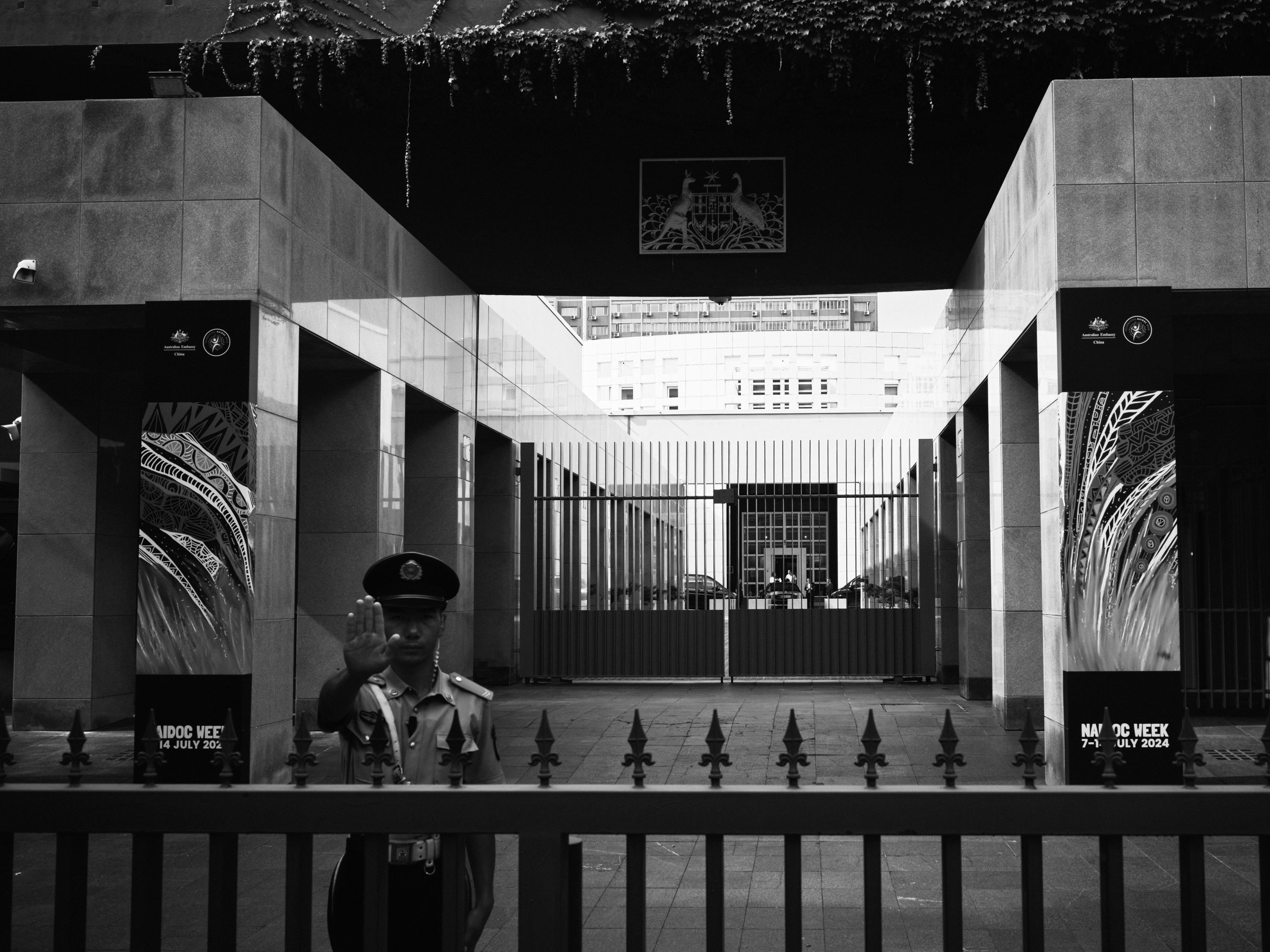How the Dismissal ripples reached Beijing: Some personal recollections
November 10, 2025
Life in Beijing in 1975 was not easy and the events leading up to the Dismissal of the Whitlam Government in November piled on the pressure.
There were practical problems and there was existential angst about the future of the Australian embassy. As we reach the 50th anniversary of events in Canberra, it is important to recognise that they had profound implications not only for the national political system, but also for our international relations.
I had arrived in Beijing in March 1975 as the first Cultural Counsellor and had spent a hectic six months acclimatising, putting in place groundbreaking cultural and scientific initiatives, supporting education exchanges and implementing information programs, while managing schooling for my children, being sensitive to the stresses incurred by my ethnic Chinese husband and finding my place in two cultures, neither of which was sympathetic to a career woman. I was nevertheless committed to my job, believing in the essential correct orientation of the Australian Labor Party’s platform that gave priority to the normalisation of relations with the People’s Republic of China.
From March to October, I had settled my sons in a local school, had experienced two cases of detention by local security offices (on spurious grounds), had seen my husband leave the country to reassure his parents that the family were nevertheless safe in “Red China”, had travelled extensively with visiting Australian cultural promotions and was well advanced in negotiation of major events planned for 1976 and 1977, including a Chinese archaeological exhibition and an Australian documentary film series.
The Australian embassy was small but enthusiastic, headed by an exceptionally young ambassador, Stephen FitzGerald, and the staff were excited by the task, as they saw it, of engaging with an emerging Asian power and helping to determine how Australia might fit in with our regional neighbours and hopefully profit from doing so. Prime minister Gough Whitlam had appointed FitzGerald to head the embassy. In doing so, he had rather put some noses out of joint in the Department of Foreign Affairs. We were conscious that there were individuals or even factions in the department that would have been only too happy to see him or his staff make mistakes.
Relations between Beijing and Canberra were further complicated because of the difficulties of communication. Official telephone calls were difficult, and personal calls could only be made through one designated office in another part of the city. There were secure cables, and other documents of lower classification were sent by diplomatic bag that was carried by staff to Hong Kong on a three-day train trip and then forwarded to Australia. It was therefore not surprising that we had only minimal information about the political storm that was brewing in Canberra over the southern winter.
As far as I remember, no one in the embassy was fully briefed about the developments that led to the withholding of supply. There had, of course, been an attempt in 1974 by the Opposition to block supply, but this had not been successful as it led to a double dissolution and the government being returned to power, although with a reduced majority. Having worked in the Department of Overseas Trade prior to my appointment to Beijing, I was aware of trade minister Jim Cairns’ affair with Junie Morosi, which led to him being sacked by Whitlam in June 1975.
Cairns had also been involved with minister for Minerals and Energy, Rex Connor, in an approach to Pakistani financier Tirath Khemlani regarding a substantial loan to the government to underwrite development plans. In mid-1975, Khemlani claimed that these discussions were ongoing and in October, Connor resigned. These developments seemed to the Australian community in Beijing to be all most unfortunate, but we continued to hope that sense would prevail, and that government policies and practices would not be affected.
The crunch came on 16-17 October when the Senate deferred appropriation bills. It was then that we and other overseas Australian public servants were warned that the regular transfers of funds as home salaries and payment of official expenses such as rent and local staff salaries might be cut off. That week, there were many worried discussions between embassy colleagues about how to cope if the worst came to pass.
The crisis became a reality with immediate practical consequences. Being a relatively new public servant and having virtually no personal savings, I was in a quandary, and once again, as many a youngster has done in the past and continues to do today, all I could do was to turn to the bank of Mum and Dad and ask for help.
Heart in mouth, we hoped against hope that the situation would return to normal. However, through the last days of October and into November, it became obvious that this hope would not be realised. All came to a head on 11 November, the day now known in history as The Dismissal. Others have written extensively about this and there is no need for me to repeat their words. For the Australian contingent in Beijing there was one major issue in addition to all those that others have most eloquently voiced: the recognition of the People’s Republic of China had been a central election promise by Whitlam and the Labor Party, while the Opposition had always maintained diplomatic relations with the Nationalist Government in Taiwan. If the Opposition returned to power, they surely were likely to close the embassy in Beijing and cut ties with the PRC.
The Fraser Government was sworn in on 12 November. In Beijing, embassy staff waited for news about their future. What happened next needs to be told in another post.
The views expressed in this article may or may not reflect those of Pearls and Irritations.


